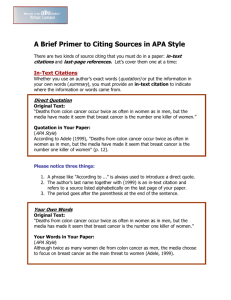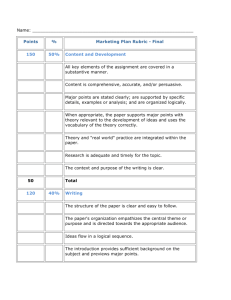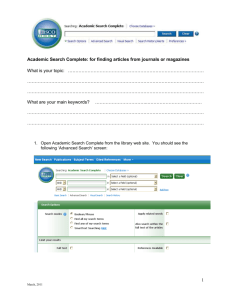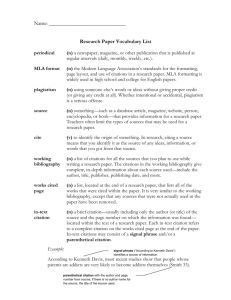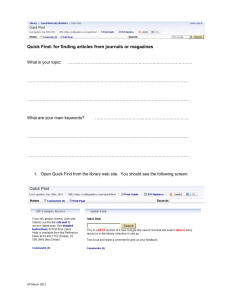APA Citation Guide: In-Text & Last Page Citations
advertisement
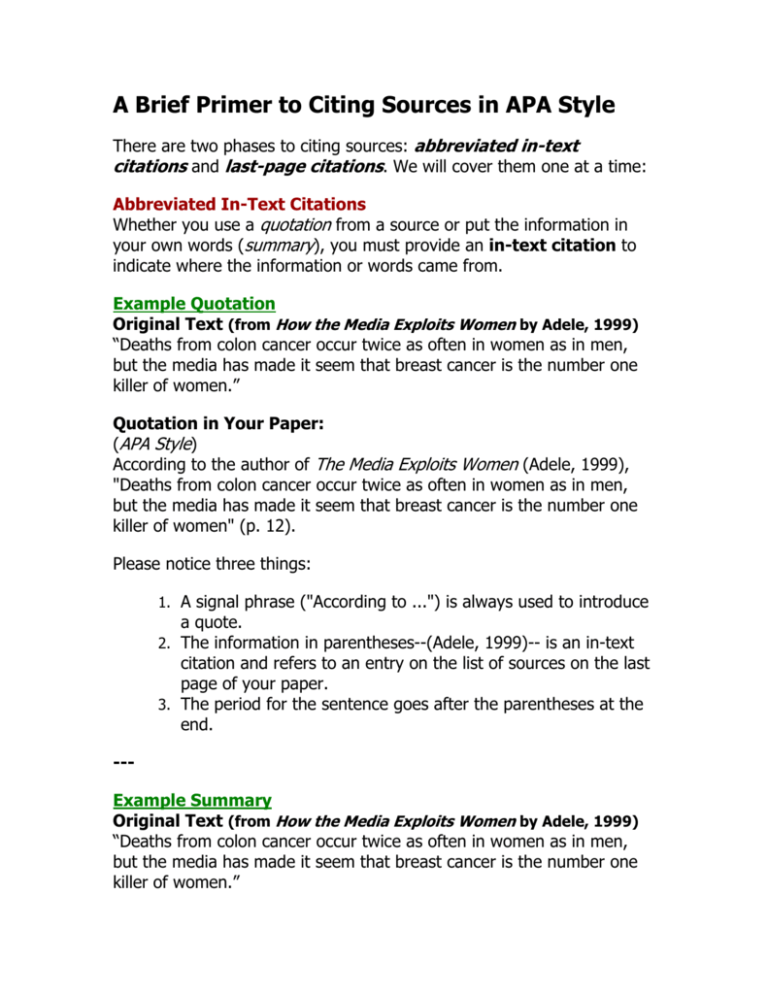
A Brief Primer to Citing Sources in APA Style There are two phases to citing sources: abbreviated in-text citations and last-page citations. We will cover them one at a time: Abbreviated In-Text Citations Whether you use a quotation from a source or put the information in your own words (summary), you must provide an in-text citation to indicate where the information or words came from. Example Quotation Original Text (from How the Media Exploits Women by Adele, 1999) “Deaths from colon cancer occur twice as often in women as in men, but the media has made it seem that breast cancer is the number one killer of women.” Quotation in Your Paper: (APA Style) According to the author of The Media Exploits Women (Adele, 1999), "Deaths from colon cancer occur twice as often in women as in men, but the media has made it seem that breast cancer is the number one killer of women" (p. 12). Please notice three things: 1. A signal phrase ("According to ...") is always used to introduce a quote. 2. The information in parentheses--(Adele, 1999)-- is an in-text citation and refers to an entry on the list of sources on the last page of your paper. 3. The period for the sentence goes after the parentheses at the end. --Example Summary Original Text (from How the Media Exploits Women by Adele, 1999) “Deaths from colon cancer occur twice as often in women as in men, but the media has made it seem that breast cancer is the number one killer of women.” Your Summary in Your Paper: (APA Style) Although twice as many women die from colon cancer as men, the media chooses to focus on breast cancer as the main threat to women (Adele, 1999). Notice that: 1. The same information and a few of the same key words from the Adele source were used, but the info was put into my unique phrasing. 2. No quote marks are necessary because I used my own wording. 3. The in-text citation comes at the end of the sentence and cites the source in which I found the information. Not a Book? Not a Problem The example in-text citations above are for a book. Increasingly, research papers include more electronic sources than print ones. No problem. The same principles apply. More importantly, there are citation machines that provide the correct format for your sources automatically. See the citation machines listed below. Last Page Citations Since you are using APA, this last page is called "References"--a word which is centered on the last page. Citation machines produce the correct format for you automatically. All you have to know is the kind of source you used (book, web site) and the type citation style you are using (APA). For articles found in the Cybrary, use the Citation Machine’s format for “Online Subscription Database.” Link for The Citation Machine: http://www.citationmachine.net/ Using APA-Style Subheadings/Subtitles One of the smartest things you can do in your paper is to divide its main sections with subheadings/subtitles. These provide crystal clear signposts to the paper’s organization and show that you know how to support your thesis with a series of main points. In your research paper, find the paragraphs that relate to the same main point. Or, it may be just one paragraph. Then use a short descriptive phrase to introduce that section of your paper. Here is a sample APA-style paper that shows you how: Gallaudet Sample APA Paper. Good luck!!
